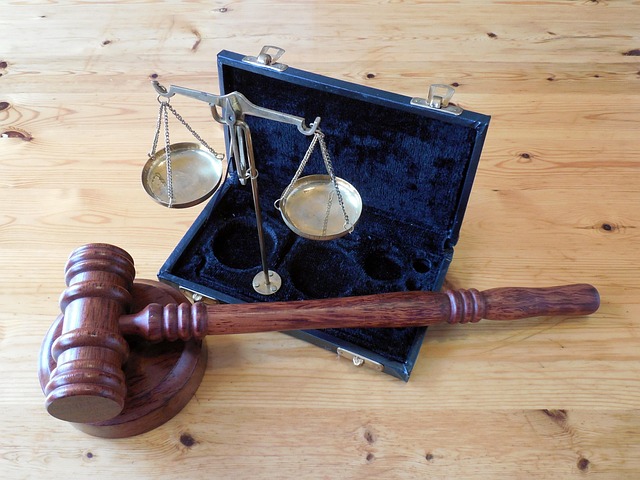Breach of contract disputes range from minor to complex legal battles with varying costs based on jurisdiction, dispute complexity, and contract value. Direct breaches are clear and less expensive, while indirect breaches involve actions impairing contract performance, leading to intricate debates. Assessing monetary damages considers direct and indirect losses. Specific Performance mandates contractual obligations' fulfillment, avoiding complex damage assessments. Alternative Dispute Resolution (ADR) offers cost-efficient solutions like mediation and arbitration, saving time and money compared to traditional litigation.
Litigation is a complex landscape, particularly when navigating breach of contract cases. This article delves into the diverse realm of litigation types, offering insights on understanding contractual disputes and remedies. We explore key concepts such as direct versus indirect violations, monetary damages assessment, specific performance enforcement, and cost-efficient alternative dispute resolution methods. By familiarizing yourself with these aspects, you can better manage the potential costs of litigating breach of contract cases, ensuring a strategic approach to legal proceedings.
- Understanding Contractual Disputes & Remedies
- Types of Breach: Direct vs Indirect Violations
- Monetary Damages: Assessing Loss & Liability
- Specific Performance: Enforcement & Remedy
- Alternative Dispute Resolution: Cost-Efficient Solutions
Understanding Contractual Disputes & Remedies
Understanding Contractual Disputes & Remedies
Contractual disputes are a common occurrence in business transactions, and they can range from minor disagreements to complex legal battles. When a party believes that another has breached their contractual obligations, the first step is often to seek legal redress. The cost of litigating a breach of contract case varies widely depending on factors like jurisdiction, the complexity of the dispute, and the value of the contract. Legal professionals with an unprecedented track record in winning challenging defense verdicts can play a crucial role in these scenarios, providing guidance tailored to each client’s unique situation.
The remedies available for contractual breaches can be substantial, ranging from monetary damages to specific performance or injunctive relief. For white-collar defense cases, where contracts often involve intricate legal language and significant financial stakes, strategic negotiations and robust litigation strategies are essential. This involves a thorough analysis of the contract, evidence gathering, and meticulous planning to ensure the best possible outcome for the client.
Types of Breach: Direct vs Indirect Violations
Breach of contract litigation often revolves around two main types of violations: direct and indirect. Direct breaches occur when a party explicitly fails to fulfill their contractual obligations, such as delivering goods or services as promised. This type of breach is relatively straightforward to prove, as it involves a clear violation of a specific term in the contract. On the other hand, indirect breaches are more nuanced; they arise from actions or omissions that indirectly result in a failure to perform the contract. These can include situations where a party’s conduct renders performance impossible or significantly impairs the other party’s ability to benefit from the agreement.
When discussing the cost of litigating breach of contract cases, it’s crucial to differentiate between these types. Direct breaches may be less expensive to litigate due to their clear-cut nature, allowing for more direct and efficient legal strategies. In contrast, indirect breaches can lead to complex legal debates, as they often involve interpreting a party’s actions in relation to the contract’s overall purpose. This complexity can significantly impact litigation costs, especially when cases involve high-value contracts or when there are additional issues like white-collar and economic crimes or general criminal defense considerations, which may require extensive expert testimony and legal maneuvering within philanthropic and political communities.
Monetary Damages: Assessing Loss & Liability
In litigation involving breach of contract, assessing monetary damages is a meticulous process that requires careful evaluation of the loss incurred by the aggrieved party. This involves understanding the direct and indirect costs arising from the contractual breach, encompassing both tangible and intangible elements. The goal is to compensate the victim fairly, ensuring they are restored to their pre-breach position, while also deterring potential future violations.
The cost of litigating such cases can vary widely depending on several factors, including the complexity of the contract, the extent of the breach, and the jurisdiction. Legal professionals play a pivotal role in navigating all stages of the investigative and enforcement process, which may involve uncovering white collar and economic crimes. Their expertise is crucial for constructing compelling arguments and presenting strong evidence to secure winning challenging defense verdicts for their clients.
Specific Performance: Enforcement & Remedy
Specific Performance is a unique remedy available in contract law, allowing courts to order one party to fulfill their contractual obligations instead of awarding monetary damages. This enforcement mechanism is particularly relevant when dealing with breaches of contract that are not easily measurable in financial terms. For instance, if a contractor fails to complete a project as specified, a court might grant specific performance to ensure the contractor finishes the work according to the agreed-upon standards.
The advantage of this remedy over simply awarding damages for breach of contract is twofold. Firstly, it ensures that the non-breaching party receives the exact performance promised, avoiding the potential for further losses or inconvenience. Secondly, it can be more cost-effective than litigating the breach and determining monetary compensation across the country, especially in complex cases where assessing damages might prove challenging. In some instances, specific performance can even lead to a complete dismissal of all charges if the breaching party fully complies with the court’s order.
Alternative Dispute Resolution: Cost-Efficient Solutions
Alternative Dispute Resolution (ADR) offers a cost-efficient approach to resolving legal conflicts, particularly in the context of breach of contract cases. Unlike traditional litigation, which can be lengthy and financially burdensome, ADR methods such as mediation and arbitration provide faster, more affordable alternatives. This is especially beneficial for smaller businesses and individuals who may not have the resources to navigate high-stakes cases. By using ADR, parties can avoid court costs, attorney fees, and the time spent in litigation, resulting in a more accessible and effective resolution process.
The benefits of ADR extend beyond financial savings. It encourages collaboration and communication between disputing parties, fostering a mutually agreeable solution. This approach is increasingly popular across the country, as philanthropic and political communities recognize its potential to reduce judicial backlogs and improve access to justice. By embracing alternative dispute resolution, legal systems can ensure that even complex cases are handled efficiently without placing an immense financial strain on those involved.
In navigating litigation types, understanding contractual disputes and their remedies is paramount. This article has explored key aspects, from distinguishing between direct and indirect breaches to assessing monetary damages and exploring alternative dispute resolution methods. By recognizing the intricacies of breach types and the potential costs of litigating, such as the significant expense associated with breach of contract cases, individuals and businesses can make informed decisions to mitigate risks and foster more efficient resolutions.






